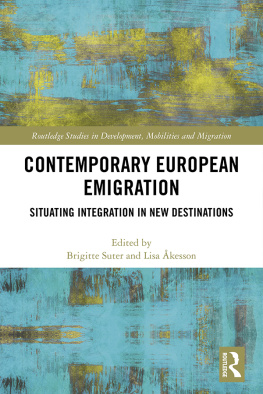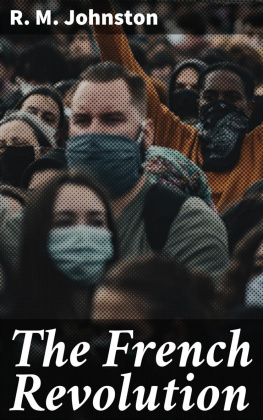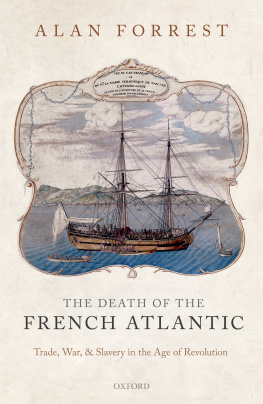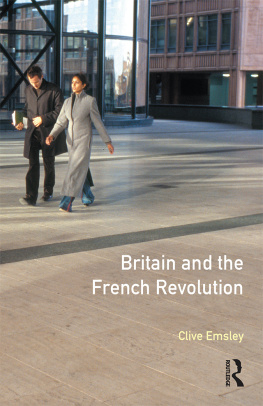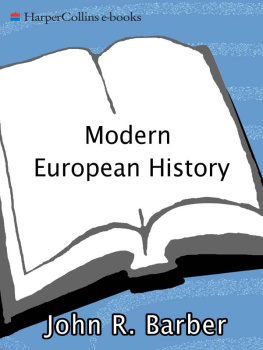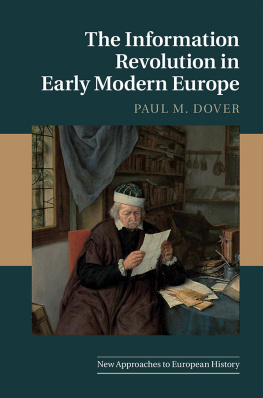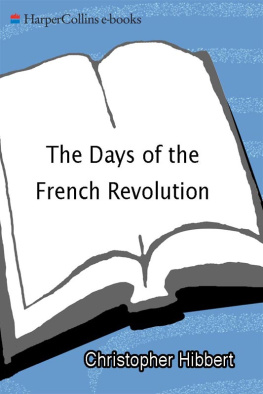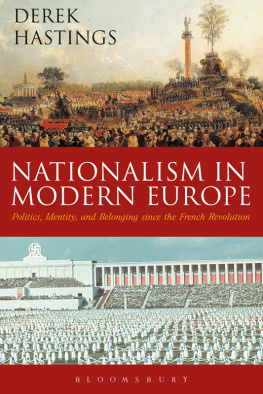ROUTLEDGE LIBRARY EDITIONS:
PEACE STUDIES
Volume 4
FIVE VIEWS ON EUROPEAN PEACE
FIVE VIEWS ON EUROPEAN PEACE
Edited by
SANDI E. COOPER
First published with a new introduction in 1972 by Garland
Publishing, Inc.
This edition first published in 2020
by Routledge
2 Park Square, Milton Park, Abingdon, Oxon OX14 4RN
and by Routledge
52 Vanderbilt Avenue, New York, NY 10017
Routledge is an imprint of the Taylor & Francis Group, an informa business
1972 new introduction by Garland Publishing Inc.
All rights reserved. No part of this book may be reprinted or reproduced or utilised in any form or by any electronic, mechanical, or other means, now known or hereafter invented, including photocopying and recording, or in any information storage or retrieval system, without permission in writing from the publishers.
Trademark notice: Product or corporate names may be trademarks or registered trademarks, and are used only for identification and explanation without intent to infringe.
British Library Cataloguing in Publication Data
A catalogue record for this book is available from the British Library
ISBN: 978-0-367-21777-8 (Set)
ISBN: 978-0-429-29830-1 (Set) (ebk)
ISBN: 978-0-367-22855-2 (Volume 4) (hbk)
ISBN: 978-0-429-27729-0 (Volume 4) (ebk)
Publishers Note
The publisher has gone to great lengths to ensure the quality of this reprint but points out that some imperfections in the original copies may be apparent.
Disclaimer
The publisher has made every effort to trace copyright holders and would welcome correspondence from those they have been unable to trace.
Five Views on European Peace
Reorganization
of the European Community
by
Henri Comte de Saint-Simon
Considerations on the Political
System Now Existing in Europe
by
Friedrich von Gentz
The
United States of Europe
by
Victor Hugo
Europe: Its Condition
and Prospects
by
Giuseppe Mazzini
Dernire Guerre
et la paix dfinitive en Europe
by
Victor Considrant
with a new introduction
for the Garland Edition by
Sandi E. Cooper
The new introduction for this
Garland Library Edition is Copyright 1972, by
Garland Publishing Inc.
All Rights Reserved
Library of Congress Cataloging in Publication Data
Main entry under title:
Five views on European peace.
(The Garland library of war and peace)
CONTENTS: Reorganization of the European community, by H. C. de Saint-Simon [first published 1814].The United States of Europe, by V. Hugo [first published 1914].Considerations on the political system now existing in Europe, by F. von Gentz [first published 1818]. [etc.]
1. Peace. 2. EuropePolitics17891900.
I. Series.
JX1963.F612 1972 320.9'4'028 72-4l59
ISBN 0-8240-0219-9
Printed in the United States of America
Introduction
The years of the French Revolution and the Napoleonic conquest of Europe revealed an undeniable conjunction between international war and internal revolution, a combination which both repelled and attracted contemporary and successive generations. Represented in this volume are excerpts from five eminent Europeans who lived, wrote and worked in the shadow of that awesome reality. Though their attitudes toward war and revolution differ sharply, the observations of Saint-Simon, Gentz, Hugo, Mazzini and Considrant reflect the responses of a wide range of committed and thoughtful Europeans.
The unifying thread binding these diverse commentators is their mutual recognition that the international order of the ancien regime was destroyed. Under no conditions could the sovereign dynastic state its monarchs and ministers, lightly engage in warfare again. The battlefield as a playground for restless royal spirits had become a seeding ground for revolution. This understanding is vividly clear in the first two selections from Saint-Simon and Gentz. The last three authors wrote with the added experience of thirty-three years of the Metternichean system which, of course, collapsed in the revolutions of 1848, and, at least on the international level, was not revived in the restorations of 1849. For Hugo, Mazzini and Considrant, the memories of the French Revolutionary era were dimmer than their immediate consciousness of the frustrations of oppressed nationalities, official and officious indifference to the yearnings of peoples for civil and political rights, and the newer demands for social rights linked to economic equality. These three had just witnessed the drama of the springtime of 1848 and then, the repressions of the winter of 1849. Generally committed to ideals of social justice and liberal nationalism, though to different means for their attainment, these three writers and activists also saw the urgent necessity of a union of peoples based on, but transcending, lines of nationality. Their vision, at least in the wake of 184849, was designed to uplift the depressed and defeated of the revolutions that failed. Mazzini, of course, was himself one of those deeply involved in the collapse of the dreams of 1848. Their humanism and humanitarianism lifted nationalism to its highest theoretical level and made it the basis of internationalism.
Saint-Simon prepared his essay which his pupil Augustin Thierry revised for publication in October, 1814 with the faint hope that the gentlemen gathered in Vienna to liquidate the Napoleonic legacy, might pay some attention to a set of dramatically new principles regarding the creation and maintenance of peace. Fortunately he was too much a realist to delude himself into thinking they would really listen but he issued The Reorganization of the European Community anyway for the benefit of future generations.
Scholars have long admired Saint-Simon for his apparent prescience about the requirements and contours of the coming age of industrialization, if not for his generally chaotic style of writing. In recent years, his reputation has spread beyond a narrow circle, mainly French, and he has become an important addition to that very creative group of social theorists which flourished in the early nineteenth century.
For Saint-Simon, the old system of balance of power and alliances was antiquated as a means for preserving peace. He surveyed the forms which preserved peace in previous epochs to determine what universal principles might be adduced and adopted by succeeding ages. He is careful to draw the line between the specific historic conditions in which any given form worked and the underlying principles of its operation. Next, contemporary forces are analyzed. Old means of ordering societies no longer functioned but new ones had not yet developed. Hints, shoots and promises of new forms and forces which would shape civilization in the future abounded. Saint-Simon expected the new era would be managed by the elites of science, the professions and businessmen replacing the role and manners of the aristocratic, privileged society. Such a coming age required new institutions of all sorts, including afresh and creative approach to the management of international affairs


